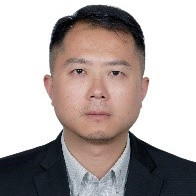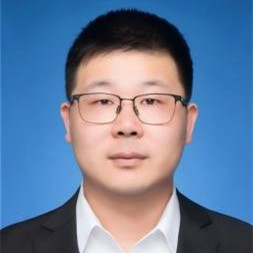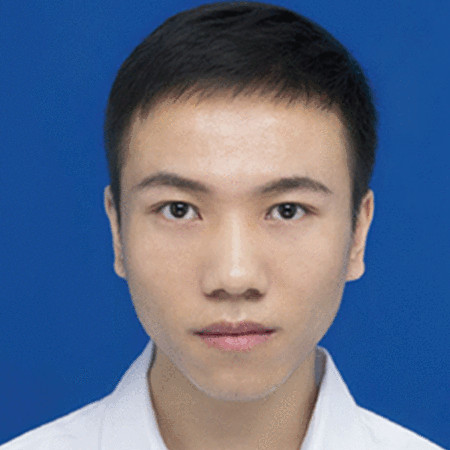Special Session I: Machine Learning Methods for Intelligent Perception and Advanced Signal Processing
Machine learning has emerged as a transformative paradigm in modern signal
processing, offering powerful tools for extracting knowledge and enabling
intelligent perception from complex and high-dimensional data. Unlike
traditional approaches that rely heavily on model assumptions, learning-based
methods can adaptively capture nonlinear structures, discover latent
representations, and enhance robustness in dynamic and uncertain environments.
These capabilities are crucial for advancing next-generation sensing and
perception systems, where radar, wireless communication, sonar, biomedical,
audio, and multimodal signals must be processed efficiently and intelligently.
This special session aims to highlight recent progress and emerging directions
in the integration of machine learning with advanced signal processing. We
encourage contributions that present novel methods, theoretical foundations, and
innovative applications, with a particular focus on machine learning-driven
perception and advanced signal processing technologies. Topics of interest
include, but are not limited to:
• Machine learning algorithms for radar, wireless communication, sonar, and
array signal processing
• Robust learning methods for complex and dynamic environments
• Data-driven approaches for intelligent sensing and multidimensional signal
processing
• Efficient learning in finite-dimensional and structured feature spaces
• Deep and reinforcement learning for perceptual intelligence and
decision-making
• Distributed learning systems for advanced signal processing
• Autonomous systems and environmental sensing enabled by learning-based methods
• Anomaly detection, predictive maintenance, and reliability in perceptual data
analysis
• Learning-driven biometric, speech, and multimodal perception
• Applications in robotics, smart manufacturing, remote sensing, and healthcare
We invite researchers and practitioners from academia and industry to contribute
original works that explore the synergy between machine learning and advanced
signal processing for intelligent perception.
Submission Method
Electronic Submission System (.pdf)
(Please select and click Special Session 1: Machine Learning
Methods for Intelligent Perception and Advanced Signal
Processing to submit.)
Organizer
 Shiyuan
Wang (Senior Member, IEEE) received the Ph.D. degree in circuit and system
from Chongqing University, Chongqing, in 2011. He was a Research Associate
at The Hong Kong Polytechnic University in 2013 and a Research Fellow at The
City University of Hong Kong in 2023, respectively. He has published one
monograph and more than 150 papers in various journals and conference
proceedings. From 2018 to 2021, he served as an Associate Editor for IEEE
TCAS II, a leading journal in circuits and systems. Currently, he is a
Professor with the College of Electronic and Information Engineering,
Southwest University, Chongqing, and continues to serve as an Associate
Editor for Symmetry. His research interests include machine learning,
adaptive signal processing, nonlinear dynamics, simultaneous localization,
and mapping (SLAM).
Shiyuan
Wang (Senior Member, IEEE) received the Ph.D. degree in circuit and system
from Chongqing University, Chongqing, in 2011. He was a Research Associate
at The Hong Kong Polytechnic University in 2013 and a Research Fellow at The
City University of Hong Kong in 2023, respectively. He has published one
monograph and more than 150 papers in various journals and conference
proceedings. From 2018 to 2021, he served as an Associate Editor for IEEE
TCAS II, a leading journal in circuits and systems. Currently, he is a
Professor with the College of Electronic and Information Engineering,
Southwest University, Chongqing, and continues to serve as an Associate
Editor for Symmetry. His research interests include machine learning,
adaptive signal processing, nonlinear dynamics, simultaneous localization,
and mapping (SLAM).
 Yunfei
Zheng received the Ph.D. degree in control science and
engineering from Xi’an Jiaotong University, Xi’an, China, in
2021. He was a Postdoctoral Researcher with the Southwest
University, Chongqing, China, from 2021 to 2024. He has
published more than 30 papers. Currently, he is a Lecturer
with the College of Electronic and Information Engineering,
Southwest University, Chongqing. His current research
interests include machine learning and adaptive signal
processing.
Yunfei
Zheng received the Ph.D. degree in control science and
engineering from Xi’an Jiaotong University, Xi’an, China, in
2021. He was a Postdoctoral Researcher with the Southwest
University, Chongqing, China, from 2021 to 2024. He has
published more than 30 papers. Currently, he is a Lecturer
with the College of Electronic and Information Engineering,
Southwest University, Chongqing. His current research
interests include machine learning and adaptive signal
processing.
 Kui
Xiong (Member, IEEE) received the B.S. degree in electronic
information science and technology from Zhejiang Sci-Tech
University, Hangzhou, China, in 2017, the M.S. degree in
signal and information processing from Southwest University,
Chongqing, China, in 2020, and the Ph.D. degree in
information and communication engineering from University of
Electronic Science and Technology of China (UESTC), Chengdu,
China, in 2024. He is currently a Postdoctoral Fellow with
the School of Information and Communication Engineering,
UESTC, Chengdu, China. His current research interests
include multiradar cooperative perception, multiagent
system, and adaptive signal processing.
Kui
Xiong (Member, IEEE) received the B.S. degree in electronic
information science and technology from Zhejiang Sci-Tech
University, Hangzhou, China, in 2017, the M.S. degree in
signal and information processing from Southwest University,
Chongqing, China, in 2020, and the Ph.D. degree in
information and communication engineering from University of
Electronic Science and Technology of China (UESTC), Chengdu,
China, in 2024. He is currently a Postdoctoral Fellow with
the School of Information and Communication Engineering,
UESTC, Chengdu, China. His current research interests
include multiradar cooperative perception, multiagent
system, and adaptive signal processing.
